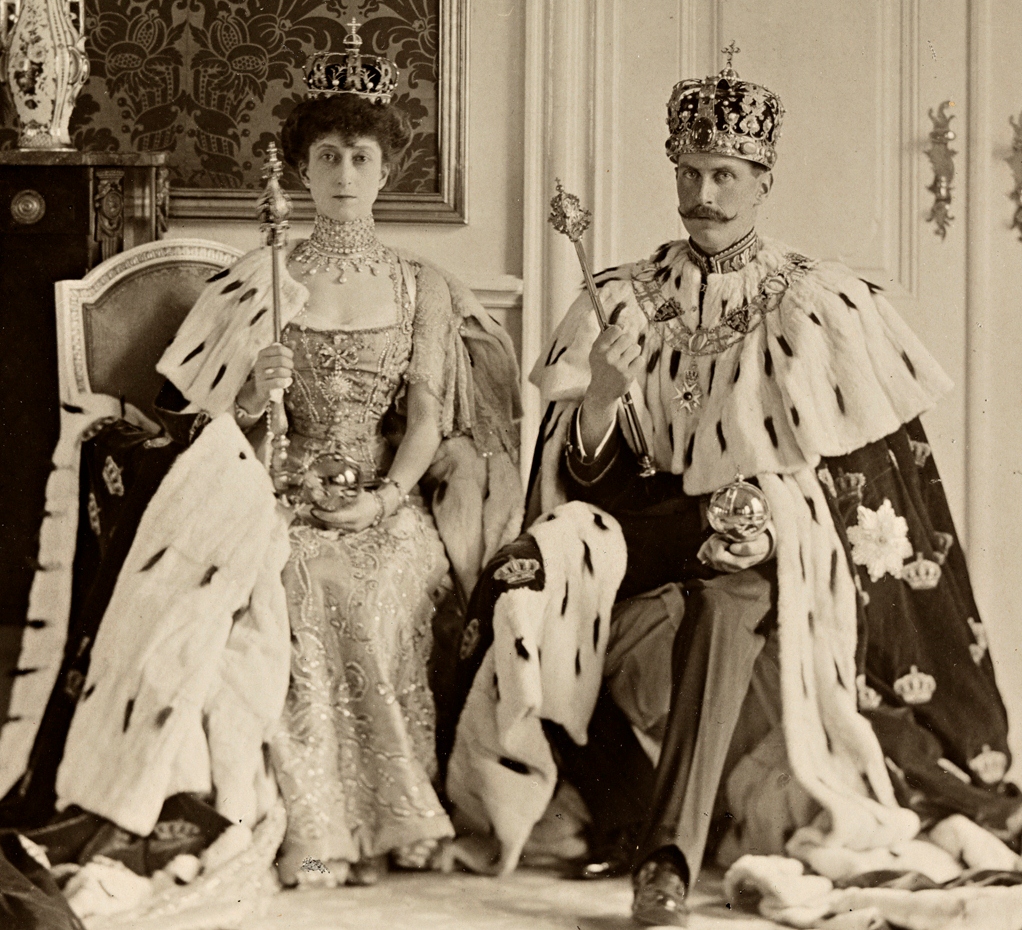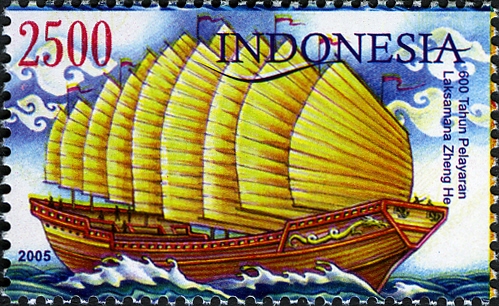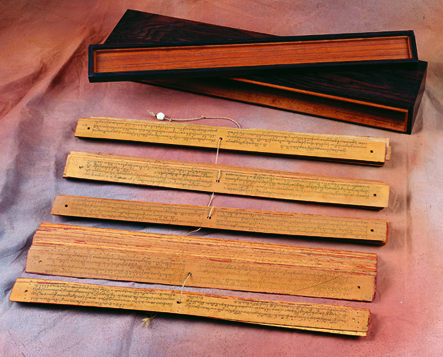|
Sultanate Of Buton
The Sultanate of Buton was an indigenous sultanate in what is today Indonesia. It used to rule over Buton island and adjacent areas within present-day Southeast Sulawesi province. It was a constitutional monarchy with its own written constitution and law, complete with bodies acting as a legislature, a system of judiciary, and executive power. Early History The islands that comprised the sultanate's territory were called "''Liwuto Pataanguna''", meaning Four Islands. People from the Buton Islands were called "''tukang besi''", literally meaning blacksmith.http://www.geocities.ws/konferensinasionalsejarah/ali_hadara_dinamika_sejarah_pelayaran_tradisional_orang_buton_kepulauan_tukang_besi.pdf There are several versions of how people there were named this way, one from an oral story of a Dutch man who arrived on the islands and was surprised to find almost everyone using iron tools, hence he named it ''Toekang Besi Eilanden''. Another version suggests that it was from another ki ... [...More Info...] [...Related Items...] OR: [Wikipedia] [Google] [Baidu] |
Indonesia
Indonesia, officially the Republic of Indonesia, is a country in Southeast Asia and Oceania between the Indian and Pacific oceans. It consists of over 17,000 islands, including Sumatra, Java, Sulawesi, and parts of Borneo and New Guinea. Indonesia is the world's largest archipelagic state and the 14th-largest country by area, at . With over 275 million people, Indonesia is the world's fourth-most populous country and the most populous Muslim-majority country. Java, the world's most populous island, is home to more than half of the country's population. Indonesia is a presidential republic with an elected legislature. It has 38 provinces, of which nine have special status. The country's capital, Jakarta, is the world's second-most populous urban area. Indonesia shares land borders with Papua New Guinea, East Timor, and the East Malaysia, eastern part of Malaysia, as well as maritime borders with Singapore, Vietnam, Thailand, the Philippines, Australia, Palau, an ... [...More Info...] [...Related Items...] OR: [Wikipedia] [Google] [Baidu] |
Executive Branch
The Executive, also referred as the Executive branch or Executive power, is the term commonly used to describe that part of government which enforces the law, and has overall responsibility for the governance of a state. In political systems based on the separation of powers, such as the USA, government authority is distributed between several branches in order to prevent power being concentrated in the hands of a single person or group. To achieve this, each branch is subject to checks by the other two; in general, the role of the Legislature is to pass laws, which are then enforced by the Executive, and interpreted by the Judiciary. The Executive can be also be the source of certain types of law, such as a decree or executive order. In those that use fusion of powers, typically Parliamentary systems, the Executive forms the government and its members generally belong to the political party that controls the legislature or "Parliament". Since the Executive requires the su ... [...More Info...] [...Related Items...] OR: [Wikipedia] [Google] [Baidu] |
Buton Palace Fortress
Buton Palace Fortress, originally the Wolio Palace, is late 16th century palatial fortress located in Baubau, Southeast Sulawesi. The palace was built in the late 16th century for Sultan Buton III, La Sangaji titled Sultan Kaimuddin (1591-1596) and was the residence of the Buton Sultanate.The Uniqueness of Buton Palace Fortress 08 APRIL 2014 by Daulat Pane and Ani Hasnah Voice of Indonesia Heritage performances are given inside the fortress. History Buton Palace Fort was built in the 16th century by Sultan Buton III named La Sangaji, titled Sultan Kaimuddin (1591-1596). Initially, the fort was only built in the form of a pile of stones arranged around the palace complex with the aim of making a fence between the palace complex and the co ...[...More Info...] [...Related Items...] OR: [Wikipedia] [Google] [Baidu] |
Constitutional Monarchy
A constitutional monarchy, parliamentary monarchy, or democratic monarchy is a form of monarchy in which the monarch exercises their authority in accordance with a constitution and is not alone in decision making. Constitutional monarchies differ from absolute monarchies (in which a monarch is the only decision-maker) in that they are bound to exercise powers and authorities within limits prescribed by an established legal framework. Constitutional monarchies range from countries such as Liechtenstein, Monaco, Morocco, Jordan, Kuwait, and Bahrain, where the constitution grants substantial discretionary powers to the sovereign, to countries such as Australia, the United Kingdom, Canada, the Netherlands, Spain, Belgium, Sweden, Malaysia, Thailand, Cambodia, and Japan, where the monarch retains significantly less personal discretion in the exercise of their authority. ''Constitutional monarchy'' may refer to a system in which the monarch acts as a non-party pol ... [...More Info...] [...Related Items...] OR: [Wikipedia] [Google] [Baidu] |
Demak Sultanate
The Demak Sultanate (کسلطانن دمق) was a Javanese Muslim state located on Java's north coast in Indonesia, at the site of the present-day city of Demak. A port fief to the Hindu-Buddhist Majapahit kingdom thought to have been founded in the last quarter of the 15th century, it was influenced by Islam brought by Muslim traders from China, Gujarat, Arabia and also Islamic kingdoms in the region, such as Samudra Pasai, Malacca and Bani (Muslim) Champa. The sultanate was the first Muslim state in Java, and once dominated most of the northern coast of Java and southern Sumatra. Although it lasted only a little more than a century, the sultanate played an important role in the establishment of Islam in Indonesia, especially on Java and neighboring areas. Etymology The origin of Demak was the settlement named Glagah Wangi. According to tradition, the first person that Raden Patah encountered in Glagah Wangi was a woman named Nyai Lembah, from Rawa Pening. Nyai Lembah ... [...More Info...] [...Related Items...] OR: [Wikipedia] [Google] [Baidu] |
Regalia
Regalia is a Latin plurale tantum word that has different definitions. In one rare definition, it refers to the exclusive privileges of a sovereign. The word originally referred to the elaborate formal dress and dress accessories of a sovereign, but now the word usually refers to any type of elaborate formal dress and dress accessories. The word stems from the Latin substantivation of the adjective ''regalis'', "regal", itself from ''rex'', "king". It is sometimes used in the singular, ''regale''. In the abstract The term can refer to the rights, prerogatives, and privileges that are held exclusively by any sovereign, regardless of title (emperor, grand duke, etc.). An example of that is the right to mint coins, and especially coins that bear one's own effigy. In many cases, especially in feudal societies and generally weak states, such rights have in time been eroded by grants to, or usurpations by, lesser vassals. Royal dress, accessories, and associated pomp Som ... [...More Info...] [...Related Items...] OR: [Wikipedia] [Google] [Baidu] |
Johor Sultanate
The Johor Sultanate ( ms, Kesultanan Johor or ; also called the Sultanate of Johor, Johor-Pahang, or the Johor Empire) was founded by Malaccan Sultan Mahmud Shah's son, Sultan Alauddin Riayat Shah II in 1528. Johor was part of the Malaccan Sultanate before the Portuguese conquered Malacca's capital in 1511. At its height, the sultanate controlled modern-day Johor, Pahang, Terengganu, and territories stretching from the river Klang to the Linggi and Tanjung Tuan, Muar, Batu Pahat, Singapore, Pulau Tinggi and other islands off the east coast of the Malay peninsula, the Karimun islands, the islands of Bintan, Bulang, Lingga and Bunguran, and Bengkalis, Kampar and Siak in Sumatra. During the colonial era, the mainland part was administered by the British, and the insular part by the Dutch, thus breaking up the sultanate into Johor and Riau. In 1946, the British section became part of the Malayan Union. Two years later, it joined the Federation of Malaya and subseque ... [...More Info...] [...Related Items...] OR: [Wikipedia] [Google] [Baidu] |
Spread Of Islam In Indonesia
The history of the arrival of Islam in Indonesia is somewhat unclear. One theory states that Islam arrived directly from Arabia as early as the 9th century, during the time of the Umayyad and Abbasid caliphates. Another theory credits Sufi travelers for bringing Islam in the 12th or 13th century either from Gujarat in India or from Persia. Before the archipelago's conversion to Islam, the predominant religions in Indonesia were Hinduism (particularly its Shaivism tradition) and Buddhism. The islands that now constitute Indonesia have been recognized for centuries as a source of spices such as nutmeg and cloves, which were key commodities in the Spice trade long before the Portuguese arrived in the Banda Islands in 1511. Due to the archipelago's strategic place as the gateway between the Muslim world and Imperial China, it became a busy international hub for merchants engaged in many forms of trade. It became the place where different peoples shared their respective cultures, ... [...More Info...] [...Related Items...] OR: [Wikipedia] [Google] [Baidu] |
Majapahit
Majapahit ( jv, ꦩꦗꦥꦲꦶꦠ꧀; ), also known as Wilwatikta ( jv, ꦮꦶꦭ꧀ꦮꦠꦶꦏ꧀ꦠ; ), was a Javanese Hindu-Buddhist thalassocratic empire in Southeast Asia that was based on the island of Java (in modern-day Indonesia). It existed from 1293 to circa 1527 and reached its peak of glory during the era of Hayam Wuruk, whose reign from 1350 to 1389 was marked by conquests that extended throughout Southeast Asia. His achievement is also credited to his prime minister, Gajah Mada. According to the () written in 1365, Majapahit was an empire of 98 tributaries, stretching from Sumatra to New Guinea; consisting of present-day Indonesia, Singapore, Malaysia, Brunei, southern Thailand, Timor Leste, southwestern Philippines (in particular the Sulu Archipelago) although the scope of Majapahit sphere of influence is still the subject of debate among historians. The nature of Majapahit relations and influences upon its overseas vassals, and also its status as an empi ... [...More Info...] [...Related Items...] OR: [Wikipedia] [Google] [Baidu] |
Palapa Oath
The Palapa oath ( id, Sumpah Palapa) was an oath taken by Gajah Mada, a 14th-century Prime Minister of the Javanese Majapahit Empire described in the ''Pararaton'' (Book of Kings). In this oath Gajah Mada swore that he would not taste any spice, as long as he had not succeeded in unifying Nusantara (the Malay archipelago). The oath was taken during his inauguration as Majapahit ''Amangkubhumi'' (Prime Minister) that took place in 1256 Saka (1334) or 1258 Saka (1336). The oath The main source of the Palapa oath is taken from the middle Javanese manuscript, ''Pararaton'', which states: :''Sira Gajah Madapatih Amangkubhumi tan ayun amuktia palapa, sira Gajah Mada: "Lamun huwus kalah nusantara isun amukti palapa, lamun kalah ring Gurun, ring Seran, Tañjung Pura, ring Haru, ring Pahang, Dompo, ring Bali, Sunda, Palembang, Tumasik, samana isun amukti palapa".'' Translation: :''He, Gajah Mada Patih Amangkubumi, does not wish to cease his fasting. Gajah Mada: "If (I succeed) in defeat ... [...More Info...] [...Related Items...] OR: [Wikipedia] [Google] [Baidu] |
Nagarakretagama
The ''Nagarakretagama'' or ''Nagarakṛtāgama'', also known as ''Desawarnana'' or ''Deśavarṇana'', is an Old Javanese eulogy to Hayam Wuruk, a Javanese king of the Majapahit Empire. It was written on lontar as a '' kakawin'' by Mpu Prapanca in 1365 (1287 Saka year). The ''Nagarakretagama'' contains detailed descriptions of the Majapahit Empire during its greatest extent. The poem affirms the importance of Hindu–Buddhism in the Majapahit empire by describing temples and palaces and several ceremonial observances. The manuscript In 1894, the Dutch East Indies launched a military expedition against the Cakranegara royal house of Lombok. That year, the Dutch took the manuscript as part of the valuable '' Lombok treasure'', war-booty from the destroyed palace of Mataram-Cakranagara in Lombok. The first western scholar to study the manuscript was , a Dutch philologist. He accompanied the KNIL expedition to Lombok in 1894, and is credited with saving the valuable ma ... [...More Info...] [...Related Items...] OR: [Wikipedia] [Google] [Baidu] |
Blacksmith
A blacksmith is a metalsmith who creates objects primarily from wrought iron or steel, but sometimes from #Other metals, other metals, by forging the metal, using tools to hammer, bend, and cut (cf. tinsmith). Blacksmiths produce objects such as gates, grilles, railings, light fixtures, furniture, sculpture, tools, agricultural implements, decorative and religious items, cooking utensils, and weapons. There was an historical distinction between the heavy work of the blacksmith and the more delicate operation of a whitesmith, who usually worked in Goldsmith, gold, Silversmith, silver, pewter, or the finishing steps of fine steel. The place where a blacksmith works is called variously a smithy, a forge or a blacksmith's shop. While there are many people who work with metal such as farriers, wheelwrights, and Armourer, armorers, in former times the blacksmith had a general knowledge of how to make and repair many things, from the most complex of weapons and armor to simple things ... [...More Info...] [...Related Items...] OR: [Wikipedia] [Google] [Baidu] |




.jpg)

